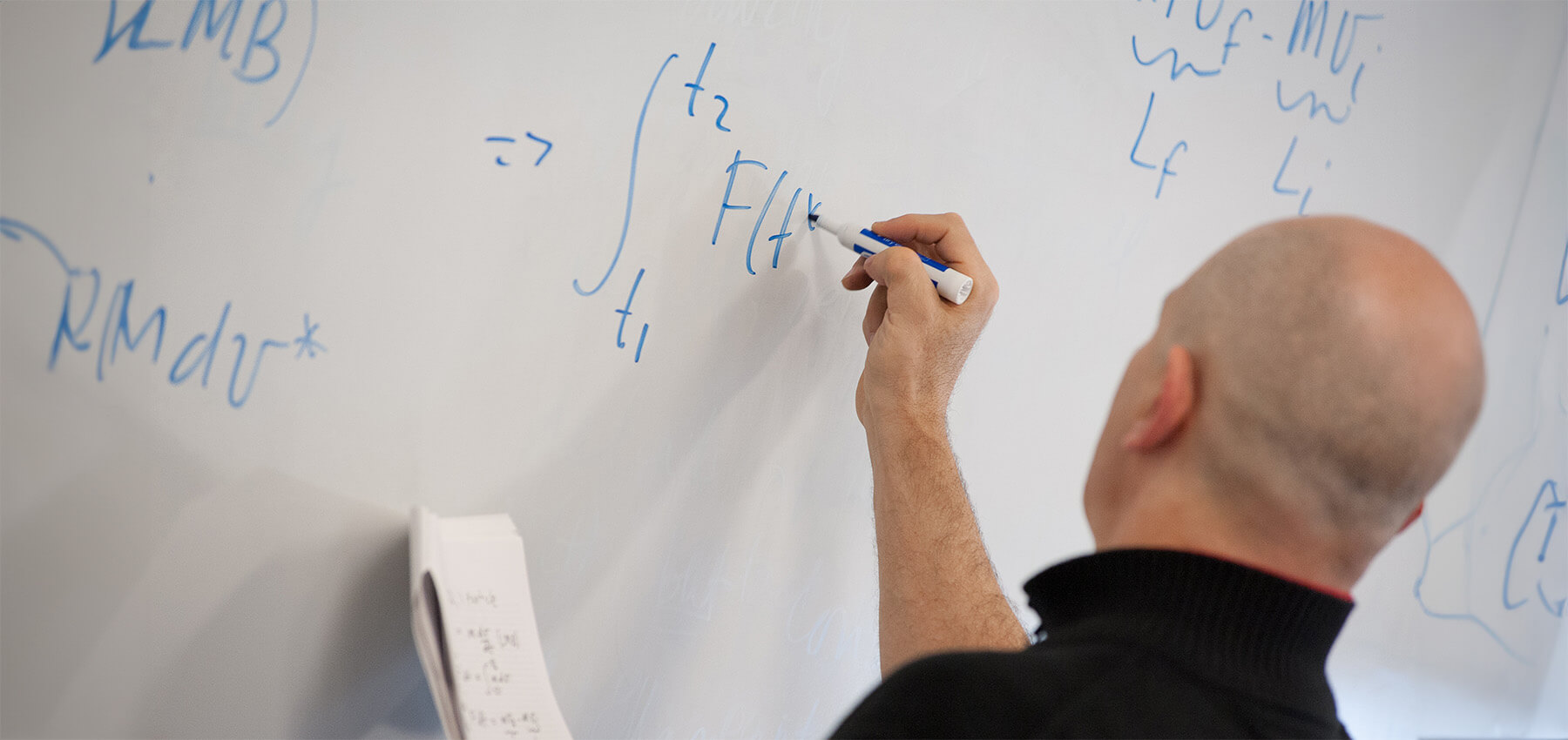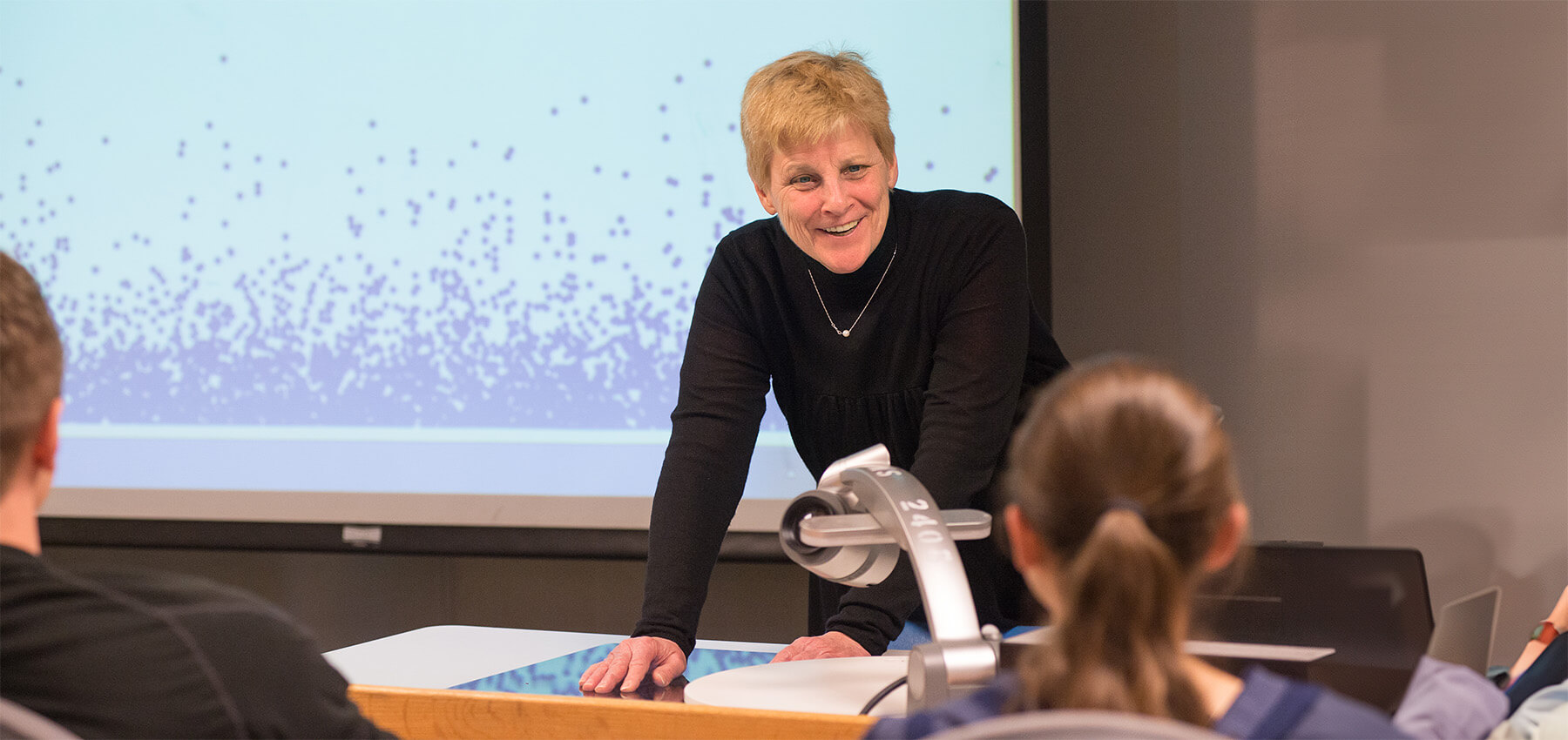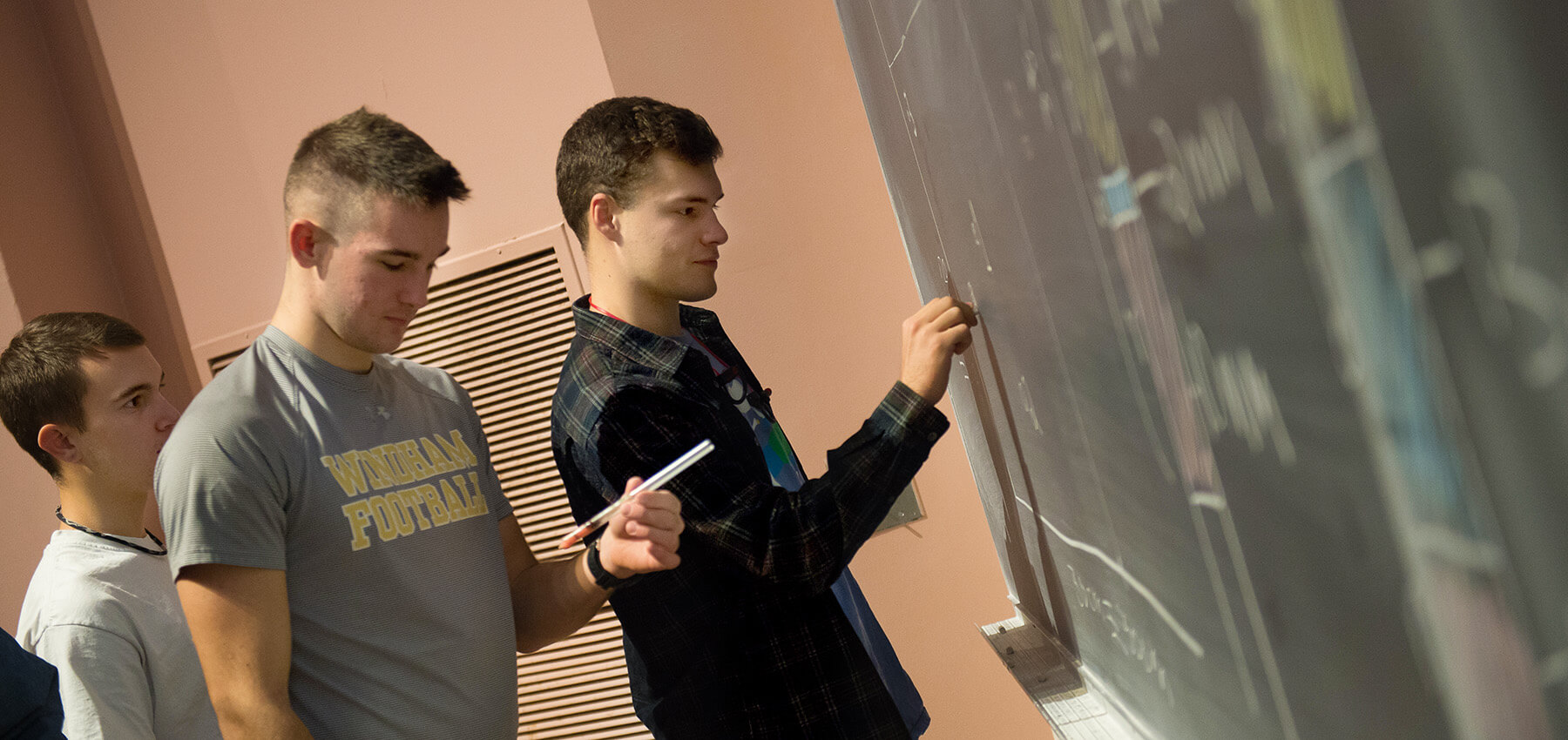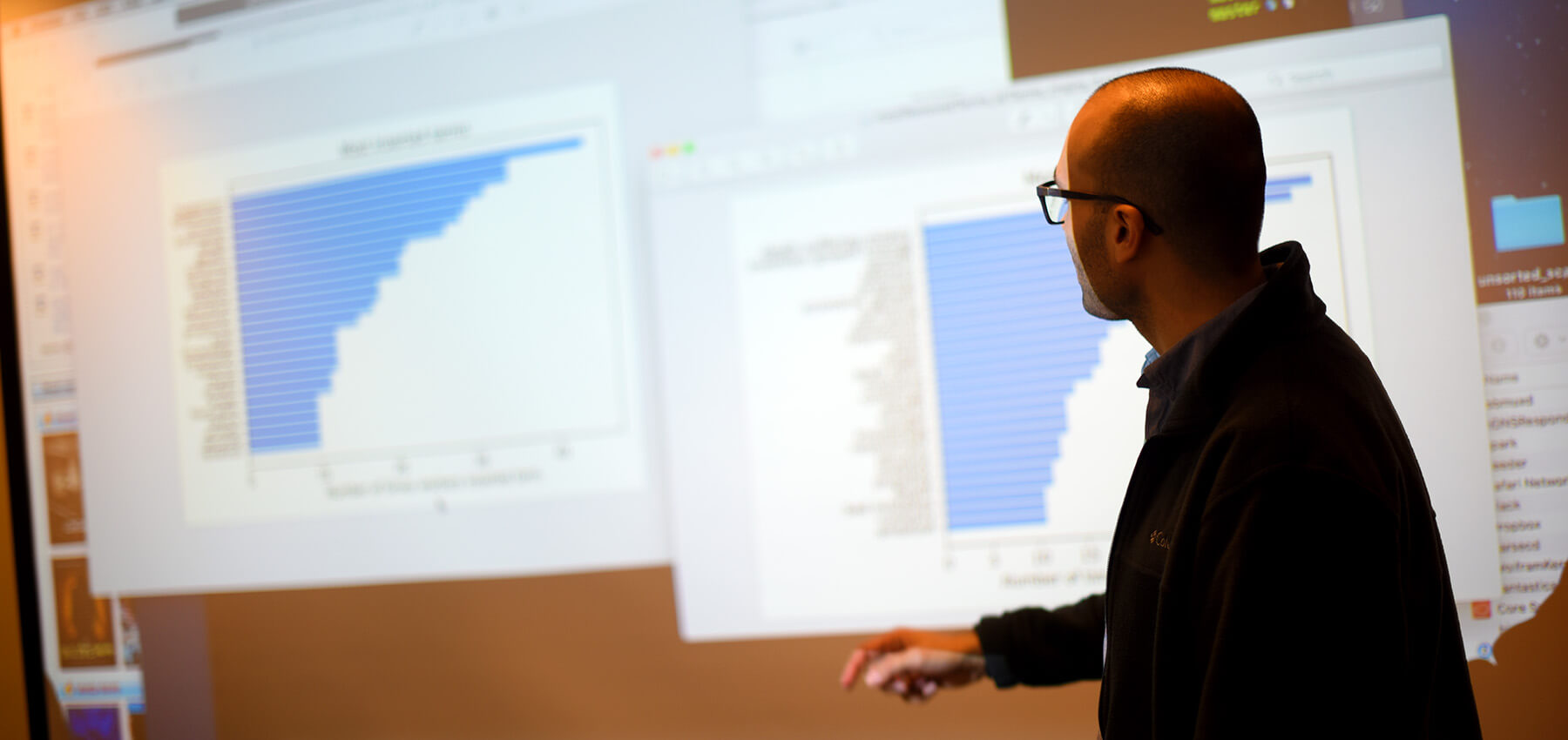Curriculum
Statistics Curricular Themes
Mathematics and statistics permeate modern life. The study of these subjects leads to the acquisition of new knowledge, new skills and a new language for communication. Below we outline the general curricular themes we see as common to all of our programs. Precise learning outcomes that are consistent with these themes and that are feasible to evaluate have been incorporated into our departmental learning outcomes.
Universality: We hope to impart an appreciation for the power, beauty and breadth of mathematics and statistics. On one extreme, theoretical mathematics and statistics are beautiful subjects that require strong skills in critical and abstract thinking. The simple abstract concepts that arise in these subjects, such as a vector or a rate of change, have been applied to the immeasurable benefit of society in all areas of human endeavors. These applied areas serve to motivate and inspire new theoretical research.
Communication: Effective communication is an essential skill in all parts of life, from the person to the professional and from the humanities to the sciences. Practicing precision and clarity in effective mathematical communication, both verbally and visually, is excellent training for oral and written communications in all fields.
Problem solving: Solving a problem, whether in mathematics and statistics or elsewhere, requires a clear delineation of the problem, requisite knowledge, relevant skills and creativity.
Computational skills: Computing, grounded in paper-and-pencil work, runs the gamut from order-of-magnitude estimates in one’s head to the ability to use a computer to provide insight into a problem. These skills are especially important in those disciplines more directed toward modeling.
Curriculum checksheets (CEMS student services)
The core curriculum, major and ancillary courses, and related requirements are detailed in the UVM Undergraduate Catalogue.



